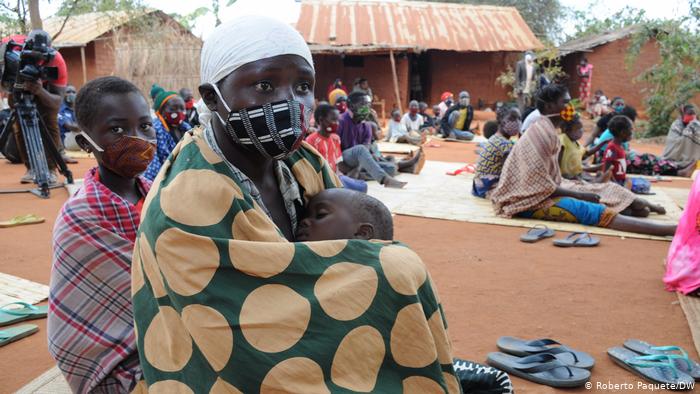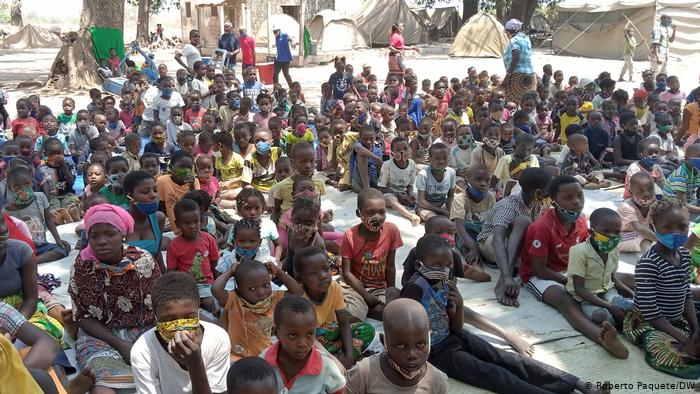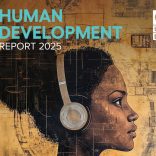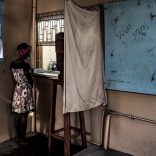Mozambique ranks 182nd, five other CPLP countries rise in Human Development Index
Spotlight falls on the resettlement of IDPs in Mozambique

File photo: DW
Criticism of the resettlement of the internally displaced persons from Cabo Delgado by Mozambican authorities is growing. The government does not seem to have any long-term plans for those fleeing terrorism in the north of the country, critics say.
In only three years, the number of internally displaced persons (IDPs) in Cabo Delgado has risen to more than 560,000. Terrorism has forced them to flee to areas considered safe, such as Pemba. In an effort to reduce the pressure on the provincial capital, the government has been resettling them in the Ancuabe and Metuge districts, but the process has serious gaps, says Rural Observatory researcher João Mosca.
“So far, we are not seeing enough resources, means and organisation to solve the problem,” the analyst says. “A large percentage of the population of Cabo Delgado is exiled outside their usual places of life, work, family. There is a very critical social situation accompanied by a dangerous political-military situation.”
AI accuses government of doing little for the displaced

The non-governmental human rights organisation Amnesty International (AI) also accuses the authorities. “Unfortunately, what we are seeing is that, in the areas where the displaced people are settling, there is no significant intervention by the Mozambican state,” AI researcher David Matsinhe told DW.
While the authorities are dealing with emergency assistance, structural questions regarding resettlement are being raised.
“I am confused, because…. Is this resettlement permanent or temporary? Has the war ended in Cabo Delgado? Can people return [to their places of origin] or not?” asks sociologist Moisés Mabunda.
Although Mabunda agrees that the priority is to assist people to live in “humane conditions”, he adds that, without clear information on the current situation, it is not possible to carry out proper resettlement.
Internally displaced persons rarely return to their villages

Resettlement which fails to address the interests of the displaced may, in the medium term, lead to endless conflict in the country. Has the government safeguarded this aspect and adjusted the resettlement plan to the situation?
The Secretary of State in the northern province of Cabo Delgado, Armindo Ngunga, implies that it has not, saying that the authorities are, for now, focusing their efforts on emergency assistance. “The matter is one of urgency. What the government is doing is create the best possible conditions for these people to live well, so that they can produce for their livelihood, have a good roof, street layout … .”
Ngunga notes that the history of the 16-year war in Mozambique shows that those internally displaced do not, for the most part, return to their places of origin, eventually adapting to their ‘new homes’. The atrocities they have experienced and witnessed also loom large in their reluctance to return to their natal villages.













Leave a Reply
Be the First to Comment!
You must be logged in to post a comment.
You must be logged in to post a comment.